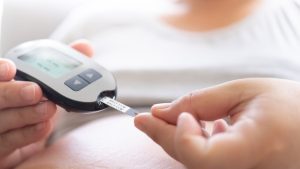Learning Modules / On-Demand Seminar | Women’s & Children’s Health Update 2023
$150 for 3 months access. Click the orange button to access this course when you’ve logged in and made payment.
These are activities that expand general practice knowledge, skills and attitudes, related to your scope of practice.
These are activities that require reflection on feedback about your work.
These are activities that use your work data to ensure quality results.
These are activities that expand general practice knowledge, skills and attitudes, related to your scope of practice.
These are activities that require reflection on feedback about your work.
These are activities that use your work data to ensure quality results.
About this On-Demand Seminar
Please note the on-demand seminar 2023 is no longer available for purchase. For those who have already purchased before 31 January 2024, you will still have access to the content for the next 3 months. Just log in and click on the orange button to access the course.
If you are a member with the RACGP or ACRRM, Healthed will manage your CPD hours for you until May 2024.
——————————————————————————————————————————————————————————————
We’re thrilled to offer an online version of the 2023 Annual Women’s & Children’s Health Update. This value-packed online learning module features a high quality educational programme presented by leading experts focusing on practical clinical issues that you face every day.
This activity is available to access for 3 months from the time you have enrolled or purchased the activity.
This activity is accredited with the RACGP and ACRRM. Gain up to 15.5 hours of CPD (10.5 hours EA + 5 hours RP). A separate optional Mini-audit activity for 5 hours of MO is also included in the bundle. Others may be able to self-claim/ log activities with their professional CPD bodies.
For RACGP and ACRRM members: If most of your learning has been completed in 2023, these hours will be uploaded into your CPD account for 2023. CPD hours for all activities completed starting from October 2023 to mid-January 2024, will be uploaded by the end January 2024.

On-demand access to these lectures:
PLUS
Optional 5 hours of Measuring Outcomes activity: Dementia Prevention in Primary Care – A Mini-Audit
This activity will focus on dementia prevention in primary care and will involve:

